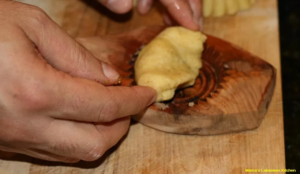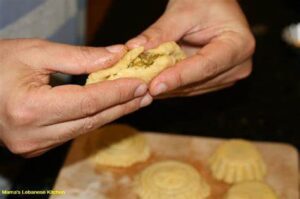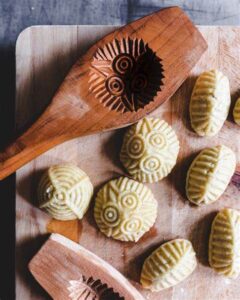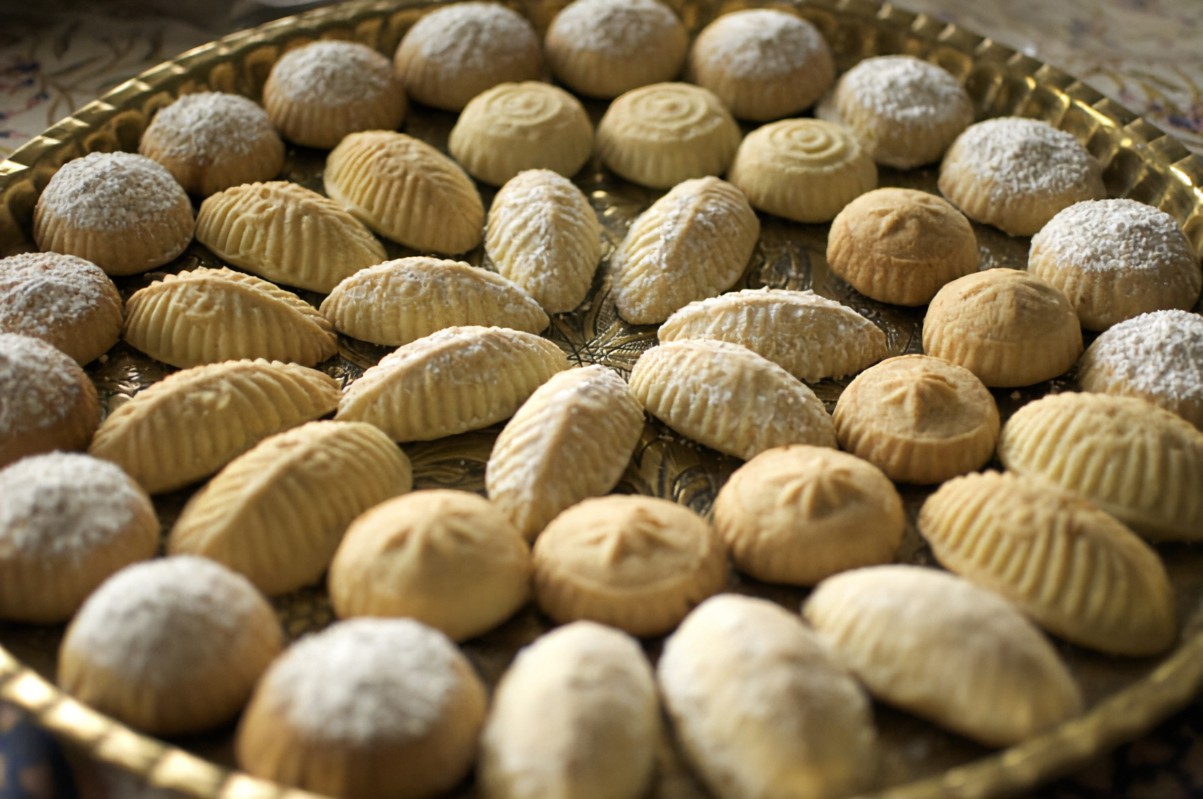Maamoul, a delicious pastry that has graced the tables of Syria for centuries, is more than just a sweet treat; it is a symbol of unity, tradition, and the rich cultural tapestry of the Syrian people. This article delves into the history of maamoul, its significance as a Syrian traditional sweet, and the societal practice of making maamoul that brings together family generations around the kitchen table.
A Confectionery with Ancient Roots:
The origins of maamoul can be traced back to the ancient city of Babylon, where it was revered during religious festivities as a blessed creation made from the earth’s bounty. Its form closely resembled the traditional maamoul, reflecting the enduring customs of the time. As the faith of Ashurism gave way to Christianity by the end of the fourth century, maamoul continued to be a cherished part of Syrian culture.The Byzantine era saw ma’amoul’s popularity soar as both Syrians and Romans produced it for Christian holidays and the pre-Lenten period. Symbols like the cross or circular patterns representing Christ’s crown adorned these pastries, which spread under Byzantine rule and persisted in Syria, Lebanon, and Palestine. In Aleppo, during Ayyubid times, “Kerebiç”in Turkish or “Karabij” in Arabic emerged as a type of ma’amoul filled with dates or Syrian pistachios, wrapped in a date syrup-coated dough called (Elnatef).
A Symbol of Faith and Celebration:
 Maamoul, the ideal shortbread cookie of the Levantine region, is a culinary delight that embodies the spirit of Easter and Eid celebrations. It is the perfect indulgence after a period of fasting during Ramadan or Lent. In the weeks leading up to Easter or Eid al-Fitr (the end of Ramadan), Syrian households embark on the maamoul-making ritual.
Maamoul, the ideal shortbread cookie of the Levantine region, is a culinary delight that embodies the spirit of Easter and Eid celebrations. It is the perfect indulgence after a period of fasting during Ramadan or Lent. In the weeks leading up to Easter or Eid al-Fitr (the end of Ramadan), Syrian households embark on the maamoul-making ritual.
A Social Tradition:
Making maamoul is not just about crafting delicious pastries; it is a cherished tradition that brings all family members and generations together, fostering creativity and providing a delightful stress release. It is a time for sharing stories, passing down recipes, and strengthening bonds.
The dough, crafted from wheat flour and/or semolina, is pressed into special wooden molds, each intricately carved to create the iconic domed shape.Selecting the right type of mold engrave (Tabbeh)for each filling paste, eitherthe sweet date paste, crunchy walnuts, or rich pistachios is a delicate process. The fillings are infused with the fragrant essence of rosewater or orange blossom, adding a touch of floral sweetness.
From sorting nuts to shaping dough,it’s a time when every family member contributes to the process. My mother, Elham, with her seasoned hands and keen eye for detail, sits at a table sorting pistachios and walnuts each separated,ensuring that neither a speck of shell nor a single shriveled pistachio makes its way into her renowned Maamoul.
Once all ingredients are ready, my daughters pinch off balls from the mountain of semolina dough. I shape the dough balls into small cups and stuff them with either date paste, pistachios, or walnuts.Then, mum and Leem the smallest member of the family press each stuffed dough ball into an antique wooden mold, which they thwack against a wooden stump to toss out a perfectly formed cookie, ready to be baked. In a matter of minutes, we all prepare dozens more.
 As the maamoul bakes, the anticipation builds. The family gathers, young and old, to partake in this age-old tradition. There’s a sense of unity in this shared experience, a collective effort that culminates in the joy of creation.
As the maamoul bakes, the anticipation builds. The family gathers, young and old, to partake in this age-old tradition. There’s a sense of unity in this shared experience, a collective effort that culminates in the joy of creation.
When the maamoul emerges from the oven, golden and fragrant, it’s more than just a cookie—it’s a symbol of celebration. It’s the culmination of weeks of preparation, a reward for patience and perseverance. And as it’s dusted with powdered sugar and shared among loved ones, it becomes a sweet offering to the spirit of community that defines Syrian culture.
Preserving a Sweet Legacy:
This tradition is not just about making cookies; it’s about preserving a legacy and creating memories. It’s a time for sharing stories, exchanging recipes, and enjoying each other’s company.
Whether homemade or store-bought, maamoul is a staple at any Eid/Feast celebration. Of course, the ladies of the house get extra points if it is homemade and there is the yearly competition of who makes the best maamoul in the family. It’s all in good fun and adds to the joy of the holiday season.
 Today, maamoul remains an integral part of Syrian life, enjoyed by Christians and Muslims alike. It is a reminder of Syria’s diverse heritage and the unifying power of food. As families come together to make maamoul, they keep alive a tradition that has stood the test of time—a sweet legacy that continues to bring joy to hearts across generations.
Today, maamoul remains an integral part of Syrian life, enjoyed by Christians and Muslims alike. It is a reminder of Syria’s diverse heritage and the unifying power of food. As families come together to make maamoul, they keep alive a tradition that has stood the test of time—a sweet legacy that continues to bring joy to hearts across generations.
So here’s to maamoul, to the families who make it with such care, and to the traditions that keep our hearts connected across time and space, as Syrians in the immigration countries still make maamoul wherever they are. May the legacy of maamoul continue to bring sweetness to our lives and unity to our celebrations—a confectionery that has been lovingly crafted by countless hands over millennia, symbolizing unity, faith, and familial love.
Lama Alhassanieh

